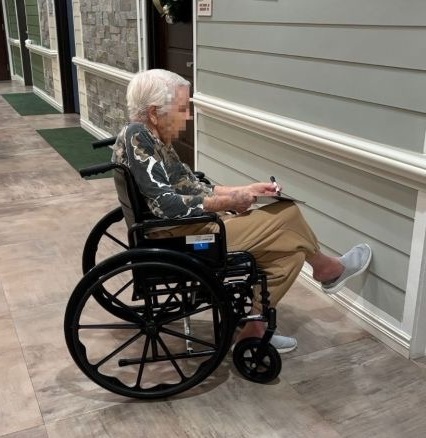Harvard University Cognitive Scientists have recognized our successes.
Developers of the MĪ Care Survey and Plan
The MĪ Care Survey and Plan: Empowering Dementia Care Professionals to Thrive
At the CFHDC, we believe that exceptional care begins with understanding. Our groundbreaking survey, rooted in scientific research, reveals the preserved strengths of individuals living with dementia. Leveraging these insights, our advanced AI-powered care plan seamlessly combines their remaining abilities with personalized details, creating tailored, person-centered strategies that significantly enhance care quality and effectiveness, such as:
Why Choose the MĪ Care Survey and Plan?
Experience a new standard in dementia care – one that recognizes strengths, respects individuality, and transforms lives.

The MĪ Care Survey and Plan empowers care providers to achieve remarkable outcomes, including:
In this CBS News segment, co-founder Matthew Call used the MĪ Care Plan Survey to assess a man's kinesthetic learning style, then applied a hand-over-hand approach to help him relearn how to write through movement.

Testimonial…
“My client becomes aggressive often. She is hard to redirect because she has little interest in what we offer her. Her survey revealed she has linguistic-verbal strengths. The next time she became upset, I offered her a whiteboard and marker. She quickly calmed down and began writing, sitting quietly for twenty minutes.”
Testimonial…
“When my nonverbal mother began losing shoulder mobility, a physical therapist dismissed her, citing her inability to follow instructions. Frustrated, I sought out a therapist who used the MĪ Care Survey and Plan to identify her kinesthetic strengths. Recognizing her love for tennis and the potential of retained muscle memory for swinging a racket, he introduced a balloon and paddle. This simple activity helped her regain upper body movement, enhancing her mobility and bringing her joy.”

